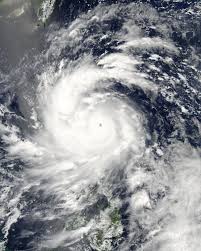Flooding was not just for Colorado last week as powerful tropical storms in Mexico and Japan caused death and devastation, leaving ominous implications for the future.
Tropical storms Manuel and Ingrid hit Mexico on opposite coasts in the week of Sept. 16, causing more than 80 deaths and destroying 35,000 homes, according to USA Today.
Tropical storm Man-yi battered Japan around the same time, killing three. Japanese public broadcaster NHK reported 128 wounded and over 4,000 homes flooded.
Despite such severity, Americans remained largely ignorant. Junior Alex Shimota stated “I try to stay away [from the news] as much as possible,” adding “it’s depressing.”
Of eight other Carlmont student asked, six said that they had not heard about the storms in Mexico or Japan, and most had not heard of the Colorado floods.
While tropical storm Ingrid landed on Mexico’s Atlantic side, Manuel stole the show from the Pacific. Accuweather.com recorded the storm as “dissipated” at 2 a.m. on Sept. 16, but Manuel reformed around 2 pm the next day. Manuel strengthened into a Category 1 hurricane on Sept. 18 with top sustained wind speeds of 75 mph, according to USA Today.
Manuel hit northern Mexico on Sept. 19, dumping 9.58 inches of rainfall on the city of Culiacan alone. Interior Minister Miguel Angel Osorio Chong described how “several two-floor houses and the church were completely buried” in a massive landslide through the village of La Pintada that left more than 58 people missing.
The Japan Meteorological Agency reported maximum wind speeds of 100 mph along with rain of nearly 3 inches per hour at times. Video footage showed pedestrians struggling to walk against the wind, umbrellas blown inside-out, and rivers swollen up to lap at bridges. 260,000 people were ordered to evacuate in the city of Kyoto alone.
“[If] one country falls, we all get hurt,” said junior Shimpei Koike when asked about the effects of natural disasters overseas. But he also stated “we need to have priorities,” citing concerns over the United States’ resources.
Freshman Isabella Franke disagreed, saying that overseas natural disasters “could be important because they could affect our nation.”
While widespread flooding in Mexico served as a grim parallel to the recent Colorado floods, additional reasons for concern have surfaced.
Typhoon Man-Yi hit Japan’s damaged Fukushima nuclear power plant around Sept. 17. Yo Koshimizu, spokesman for TEPCO, the company that owns the broken power plant, said that operators were forced to pump an unknown amount of water from areas near radioactive-water storage tanks and release it into the Pacific Ocean as an “emergency measure”.
Regulators are investigating if this release violated safety rules. On Aug. 31 NBC News reported that radiation leaked from the Fukushima plant in Japan’s 2011 disaster could reach the west coast of the United States in 2014.
More tropical storms appear to be stirring in the future. Accuweather.com reported that an area of thunderstorms near Bermuda could transform into a more organized storm sytem as it moves north. Supertyphoon Usagi, reported to be the strongest storm of 2013 with winds reaching 110 mph, whirled over Taiwan and the Philippines. Usagi hit Hong Kong as recently as Sept. 22 to cause 20 deaths.
Although invisible to many Americans, natural disasters around the globe hold significance for all.

